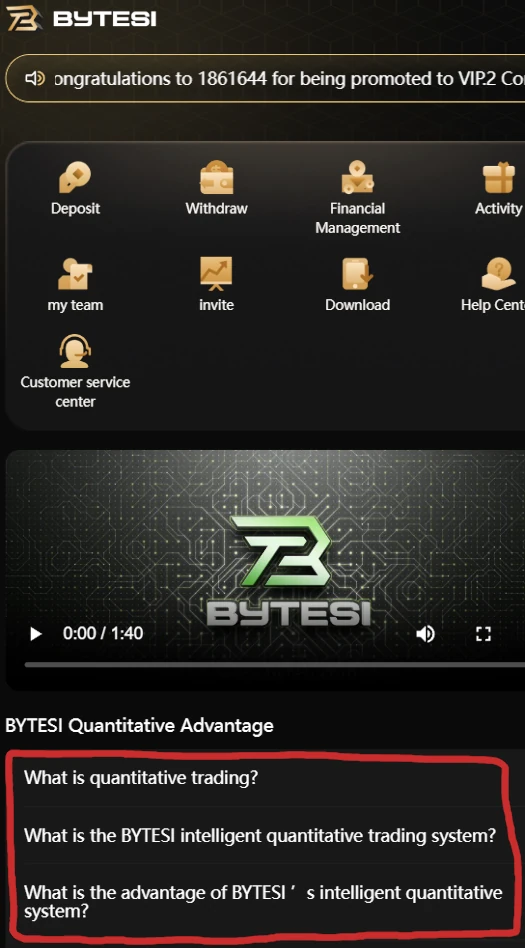Bytesi fails to supply possession or govt data on its web site.
Bytesi operates from 4 identified web site domains:
- bytesi.cc (advertising and marketing web site) – privately registered on October third, 2024
- h5.bytesi.internet (app) – privately registered on January ninth, 2024
- h5.bytesi.vip (app) – registered with bogus particulars on July twenty fourth, 2024
- bytesi.com (app) – first registered in 2017, personal registration final up to date on January eleventh, 2024 (area already deserted)
Regardless of solely current since January 2024 at finest, on its advertising and marketing web site Bytesi falsely claims it was “based in 2017”.
Bytesi additionally falsely presents a Bytesi LLC Nevada shell firm certificates as a “enterprise license”. This ties into Bytesi pretending to be based mostly out of the US.
As at all times, if an MLM firm shouldn’t be overtly upfront about who’s operating or owns it, assume lengthy and arduous about becoming a member of and/or handing over any cash.
Bytesi’s Merchandise
Bytesi has no retailable services or products.
Associates are solely in a position to market Bytesi affiliate membership itself.
Bytesi’s Compensation Plan
Bytesi associates make investments tether (USDT). That is performed on the promise of returns.
Bytesi hides particular funding tiers from the general public.
Bytesi pays referral commissions on invested USDT down three ranges of recruitment (unilevel):

As with its funding plans, Bytesi hides referral fee charges from the general public.
Becoming a member of Bytesi
Bytesi affiliate membership is free.
Full participation within the hooked up earnings alternative requires an undisclosed minimal funding in USDT.
Bytesi Conclusion
Bytesi is yet one more “click on a button” app Ponzi scheme.
Bytesi’s “click on a button” Ponzi ruse is quantitative buying and selling:

The offered ruse is Bytesi associates log in and click on a button (the extra invested the extra the button must be clicked).
Clicking the button purportedly generates income by way of quantitative buying and selling, which for some motive Bytesi shares a proportion of with affiliate traders.
If that is senseless it’s as a result of it doesn’t. Randoms clicking a button in an app doesn’t set off quantitative buying and selling.
In actuality clicking a button inside Bytesi’s app does nothing. All Bytesi does is recycle newly invested funds to pay earlier traders.
Bytesi is a part of a bunch of “click on a button” app Ponzis which have emerged since late 2021.
Examples of already collapsed “click on a button” app Ponzis utilizing the identical quantitative buying and selling ruse embody New World AI, QubitsCube and FlokiAI.
Since 2021 BehindMLM has documented tons of of “click on a button” app Ponzis. Most of them final a number of weeks to some months earlier than collapsing.
“Click on a button” app Ponzis disappear by disabling each their web sites and app. This tends to occur with out discover, leaving nearly all of traders with a loss (inevitable Ponzi math).
As a part of a collapse, “click on a button” Ponzi scammers usually provoke restoration scams. This sees the scammers demand traders pay a price to entry funds and/or re allow withdrawals.
If any funds are made withdrawals stay disabled or the scammers stop communication.
Organized crime pursuits from China function rip-off factories behind “click on a button” Ponzis from south-east Asian nations.
In September 2024, the US Division of Treasury sanctioned Cambodian politician Ly Yong Phat over ties to Chinese language human trafficking rip-off factories.
Via numerous firms he owns, Phat is alleged to shelter Chinese language scammers working out of Cambodia.
No matter which nation they function from, the identical group of Chinese language scammers are believed to be behind the “click on a button” app Ponzi plague.




